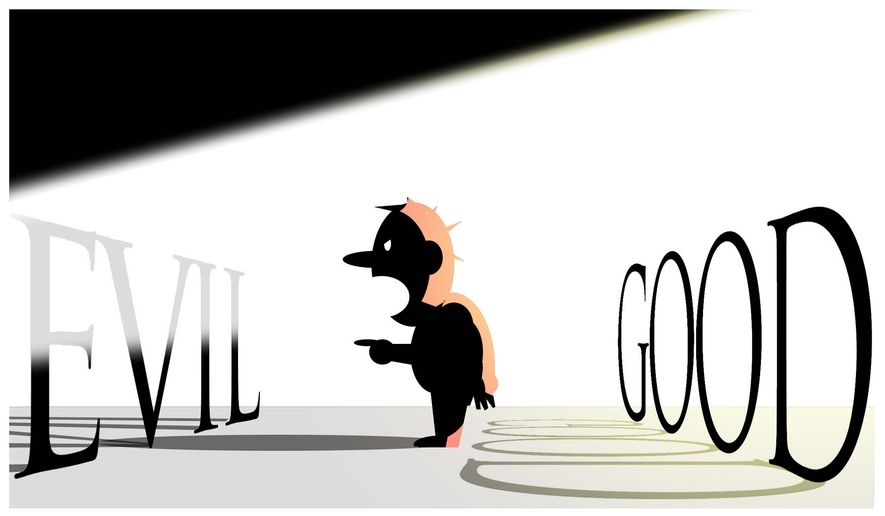OPINION:
Recent headlines prove once again a simple fact that is as obvious as the sunrise: Contrary to popular belief, and flying in the face of multiple denials, liberals and progressives alike actually do believe in God. In fact, those on the cultural left such as the ladies on “The View,” or the talking heads on MSNBC, prove their “biblical faith” as persistently and aggressively as anyone, and they do so every day.
When it comes to big issues such as God, we all have to start at the top of the funnel. Whether you are on the right or the left of the political spectrum, every human being who has ever lived has, at one time or another, asked himself, “is there any logical and empirical reason to believe in God in the first place?”
Whether your name is Machiavelli, Maher or Maddow, there is no denying you have wrestled with and tried to resolve this question. Is there a beginner who is responsible for beginnings, an organizer who is responsible for order and an engineer who is responsible for complexity?
Does a painting imply a painter? Does a building suggest a builder? Did the watch just somehow fall together by chance and start ticking? Or is the better and more logical explanation for a time-piece an actual watchmaker who understands time?
For millions over the millennia, the answer has been one of logical deduction. There has to be more than happenstance and chance behind it all. The “book” of our daily existence could not have been written without an author. This is not a leap of blind faith as much as many pretend, but, rather, one that is open-eyed and rational.
However, while beginnings, order and complexity may infer the existence of God, these things don’t really tell us anything about what God is like. Obviously, he or it doesn’t have to be moral or righteous. He could, in fact, be a distant, amoral or even disinterested and cruel deity: A cosmic sadist who enjoys toying with us. He could be something like the self-centered, vindictive and demanding gods of Greek mythology. Evidence of a creator doesn’t necessarily mean he is moral and good.
So, with this as context, how is it that progressives and liberals who fancy themselves above all the “superstition and judgment” of religion actually betray their belief in God, and even implicitly acknowledge the God of Christian orthodoxy and a biblical ethic?
It is through their anger and their indignation with conservatives.
Why are progressives so concerned with the morality of Donald Trump? On what basis do liberals argue that their agenda is just and the conservative’s is not? What leads those on the left to march for what they consider to be good and to protest what they define as evil? Why are they indignant when they see a Republican politician lie? Where does their anger come from and why does it matter so much to them? Why do they care?
As ironic as it seems, it is the left’s anger and indignation — their quickness to be offended that seems to be one of the strongest proofs they actually do believe in a final measure of morality, i.e. they do believe in the God of the Bible after all.
Otherwise, their argument for justice would have nothing other than self as a reference point, and arguing with oneself seems futile to say the least and crazy in the extreme. It would be akin to a lawyer pleading his case with no judge on the bench. Or perhaps even worse, like a dog growling at his own reflection in the mirror.
Bottom line: If God does not exist and if he is not good and just and the author and keeper of righteousness, then what is there to be righteously indignant over and to whom are we pleading our case? How can anyone explain and justify their anger if there is no ultimate authority to measure its weight and worth? Isn’t all indignation simply self-referential if some rule, or law bigger than you and me hasn’t been compromised?
If order and complexity point to a God (and they do) and if indignation and anger point to a standard of righteousness (which they must) then it seems only reasonable to ask this question: Is there any evidence of a moral standard that is a perfect scale upon which your indignation can be weighed?
The answer is yes. Badness is subjective and meaningless unless it is juxtaposed with objective goodness, and there is no example of such goodness other than what we see in the Christ of Scripture. Your anger and mine only serves to prove that we believe someone has fallen short and our arguments for justice are really nothing but subconscious appeals to Him to judge in our favor.
• Everett Piper, president of Oklahoma Wesleyan University, is the author of “Not A Day Care: The Devastating Consequences of Abandoning Truth” (Regnery 2017).




Please read our comment policy before commenting.